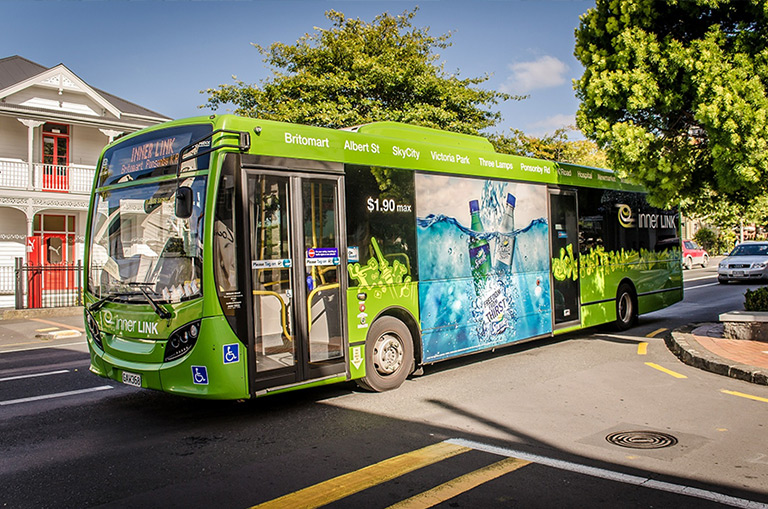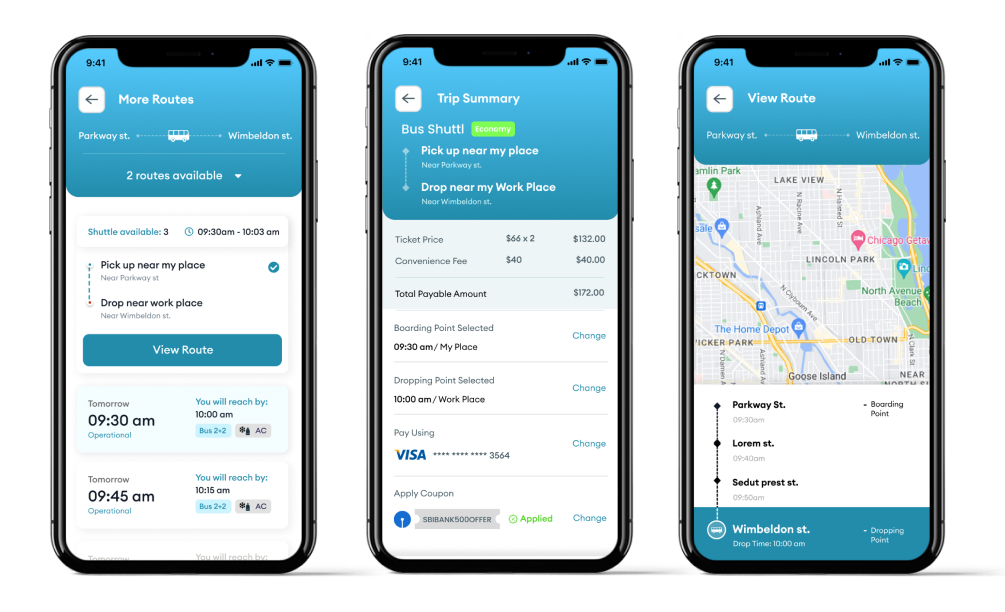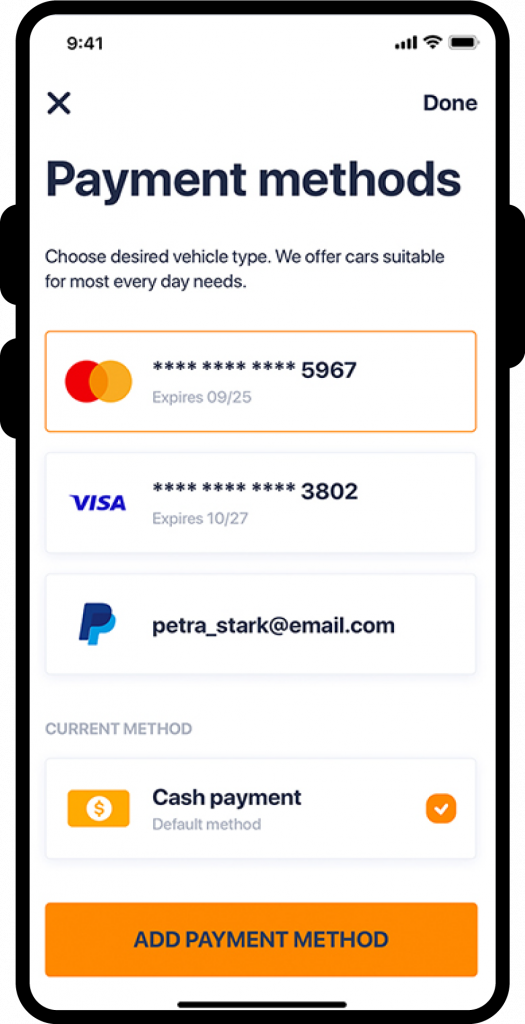
Charter Bus Software UK: Beat Top 5 Dispatch Challenges Faster
Since 2024, the charter bus industry in the UK has been shifting gears toward innovation. With the market for coach and bus transport surpassing $2.6 billion in 2022 (As per Statista), operators face tremendous pressure to keep up with ever-increasing demand and rising customer expectations. The Charter Bus Software UK market is on the fast track, racing toward a $48.3 billion valuation by 2029 with a steady 6.18% annual growth rate (Statista). For charter bus operators, this isn’t just another statistic—it’s a game-changing opportunity to head their systems toward smarter, tech-centered solutions and leave outdated practices in the rearview mirror.

The challenge? There’s a silver lining in a fast-changing environment where old systems just don’t work anymore. Well, the good news is that advanced charter bus software can help operators tackle inefficiencies, streamline processes, and deliver exceptional experiences. In this blog, we’ll unmask the top 5 challenges facing transport management systems (TMS) for charter buses in the UK and show how innovative software solutions can help operators confidently drive into the future.

Top 5 Challenges in Charter Bus Software UK

The UK’s charter bus industry is growing, but this growth is not without its challenges. Many operators, especially those just starting out, can feel like they are navigating a complex maze filled with outdated systems and inefficient processes. The outcome? Frustrated customers, wasted resources, and lost revenue. Does this sound familiar? Let’s take a closer look at the key challenges operators face and how these problems affect their everyday operations.
Transparency Gap Among Multiple Operators
Imagine a passenger books a charter bus, excited for a seamless hassle-free trip, just to find out the driver and operator have mismatched schedules. What happens next? Utter chaos! This scenario isn’t uncommon—it’s the fallout of fragmented systems where operators lack a unified dashboard to share real-time updates.
Take, for instance, a small Charter Bus Software UK company based in Manchester. They struggled to align schedules between their fleet and third-party partners, resulting in frequent double bookings and dissatisfied customers. Drivers often arrived late, unaware of last-minute updates, while operators blamed each other for the confusion. The repercussions were serious: delayed rides, rising complaints, a tarnished reputation in a competitive market, and, crucially, a decline in revenue. Without effective communication and a centralized system, it became nearly impossible to stay ahead, forcing operators to rush to resolve preventable issues.

The answer lies in a centralized Charter bus management software that allows operators, drivers, and dispatch managers to exchange real-time updates, which can cut down scheduling errors by 30% in just six months.
API Integration Issues in Payments
For operators of charter bus software UK, managing customer payments is a constant struggle, with issues ranging from delayed transactions to failed payments. For them, integrating payment gateways often feels like navigating a maze. A lack of effective integration with these gateways can lead to dissatisfied customers and lost revenue.

Take a startup in London that provides economical shared rides as an example. Their outdated payment system frequently failed during busy hours, resulting in customer frustration. Advanced software with solid API integrations simplifies transactions, automates refunds, and supports multiple currencies—crucial for operators who cater to international clients.
Real-Time Data Management Challenges
In transportation, every second counts. Managing operations in Charter bus management software without real-time data is like driving a bus blindfolded. Operators rely on accurate data to monitor fleets, update routes, and provide passengers with timely information. Yet, many systems fail to deliver this critical functionality.
Take a shuttle service in Glasgow that relied on outdated spreadsheets to track vehicle locations. When traffic jams or mechanical issues cropped up, delays were inevitable. Passengers grew increasingly frustrated with late arrivals, and the company had no way to send real-time updates to keep them informed.

The result? Poor scheduling, inefficient routes, and a flood of complaints. Unhappy customers soon turned to competitors, causing a noticeable dip in bookings and revenue. Without real-time insights, staying efficient and competitive becomes nearly impossible.
Lack of Route Automation and Optimization
In today’s fast-paced world, manual route planning is a losing game. Traffic complexities and environmental concerns demand smarter solutions, but many operators still rely on outdated methods. The result? Wasted fuel, longer travel times, and frustrated passengers.
A coach operator in Glasgow experienced this firsthand. Their reliance on manual planning often overlooked faster, traffic-free routes, leading to delays and increased fuel expenses. Passengers who anticipated on-time arrivals grew restless and started looking for other options.

This lack of efficiency doesn’t just frustrate customers—it raises operational costs and fosters a negative cycle of dissatisfaction and revenue loss. Without automated route optimization, operators could find themselves lagging in a market that prioritizes speed, efficiency, and customer satisfaction.
Lack of Flexible or Dynamic Pricing
Sticking to static pricing might feel like a secure strategy, but it actually means missing out in today’s dynamic market. Fluctuating demand during peak seasons or special events demands adaptability, and without it, operators lose out on significant revenue.
For instance, a small London operator struggled during the busy holiday season. While competitors used dynamic pricing to adjust fares and maximize profits, this operator stuck to fixed rates, leaving their buses half-empty and profits untapped.

The outcome? Stagnant revenue growth and a decline in competitiveness within a rapidly evolving industry. Operators who do not adapt may find themselves falling behind, unable to take advantage of high-demand periods or maintain their position in the increasingly competitive charter bus market.
The Hidden Cost of Inefficiencies in Charter Bus Software UK:
In the fast-moving world of charter bus operations, inefficiencies don’t just slow down processes—they silently drain revenue and erode customer trust. While operators focus on daily challenges, the hidden costs of outdated systems add up, creating a financial burden that can no longer be ignored.
| Aspects | Key Points |
|---|---|
| The Problems | Inefficiencies silently drain revenue, erode trust, and burden businesses with outdated systems. |
| The Alarming Numbers | MaaS market to hit $40.1B by 2030.Inefficiencies slash revenue by up to 10% annually (£100K for a £1M business). |
| The Risk of Staying Static | Missed routes frustrate passengers and cause delays.Payment failures push customers to competitors.These problems widen the gap with innovative businesses. |
| A Clear Call to Action | The choice is clear: innovate or stagnate. Operators of Charter Bus Software UK must adopt smarter systems to enhance transparency, streamline operations, and exceed customer expectations. Outdated software puts you behind competitors—act now to turn inefficiencies into opportunities and secure your business’s future. |
AllRide Charter Bus Software UK: Tackling Industry Challenges
1. Enhancing Transparency with Centralized Systems:
Modern TMS platforms like AllRide Bus provide a centralized system, where teams can share real-time updates on bookings, routes, and driver availability. Features like the operator module allow businesses to onboard partners and grant role-based access, ensuring smooth collaboration and accountability.
Solution in Action:
A charter bus software UK operator integrated AllRide’s system, reducing booking errors by 30% and improving customer satisfaction by 40% within six months. Additionally, for businesses managing multiple fleets, the operator module is indispensable. It allows partners to join the platform under a single admin, with specific roles and permissions. One company in Birmingham onboarded two partner fleets seamlessly, ensuring better coordination and customer satisfaction.

2. Streamlining Payments with Robust API Integrations
Charter bus management software comes equipped with advanced APIs that seamlessly integrate with multiple payment gateways, ensuring fast, secure, and error-free transactions.
Solution in Action:
After upgrading their system, a London-based operator reported a 50% reduction in payment disputes, improving cash flow and customer trust. Also, a startup in Nottinghamshire offers budget-friendly shared rides. Their outdated payment system often failed during peak hours, causing customer frustration. By integrating Stripe and PayPal through a modern transport management system, they eliminated payment failures and saw a 40% improvement in customer trust.

Robust API integrations in advanced charter bus software simplify transactions, automate refunds, and support multiple currencies—crucial for operators handling international clients.
3. Real-Time Data Management for Smarter Decisions
By using real-time GPS tracking and cloud-based data management, platforms allow operators to monitor vehicle locations, update schedules instantly, and provide accurate ETAs to passengers.

Solution in Action:
A shuttle service in Glasgow relied on spreadsheets for scheduling and vehicle tracking. When traffic delays occurred, they had no way to update customers in real-time, resulting in frequent complaints. By adopting a cloud-based system with GPS tracking, they reduced delays by 25%, improving customer satisfaction and retaining corporate clients.
4. Route Automation and Optimization
AI-driven route optimization tools analyze traffic patterns, fuel consumption, and customer preferences to create the most efficient routes.
Solution in Action:
A Scotland operator saw a 15% reduction in fuel costs within the first quarter of implementing route optimization and ensured on-time arrivals during peak hours. Automated route optimization tools not only save money but also enhance customer satisfaction.

5. Adopting Dynamic Pricing Models
Charter bus management software supports dynamic pricing algorithms that adjust fares based on demand, time, and special events, ensuring operators maximize revenue potential.
Solution in Action:
A small operator in Edinburgh shifted to dynamic pricing during the holiday seasons. By adjusting rates based on demand, they increased seasonal revenue by 20%. Charter bus software UK with dynamic pricing algorithms empowers operators to capitalize on peak demand while staying competitive.
Real Success Story: How AllRide Revolutionized Charter Bus Business in the UK
In the competitive industry of Charter Bus Software UK, staying ahead means solving problems quickly and delivering an exceptional customer experience. One of our clients, a mid-sized charter bus company operating across cities like Manchester and Birmingham, found themselves struggling with mounting operational challenges.
| Category | Details |
| Challenges | Inefficient route planning caused delays, frustrated passengers, and wasted fuel.Payment disputes arose due to integration issues with outdated gateways.Lack of team transparency led to chaos during peak hours. |
| Turning Point | Recognizing the need for modern solutions, the company adopted AllRide’s charter bus management software to address its pain points. |
| Results | 40% reduction in operational delays with real-time GPS and optimized routes.20% revenue growth from dynamic pricing and automation.50% higher satisfaction with smooth payments and live ETAs. |
| Client Feedback | “Switching to AllRide was a game-changer. Our team now works in sync, our passengers love the real-time updates, and our payment issues are a thing of the past. We’re finally able to focus on scaling our business.” |
| Takeaway | This company is now a leading example of how smart software empowers UK charter bus operators to overcome challenges, improve efficiency, and thrive in a competitive market. |

FAQs
- Can the dispatch system be customized for my charter bus business?
Definitely! AllRide allows full customization, including branded dashboards, logos, and features, to match your unique business requirements.
- Is the dispatch software cloud-based?
Yes, AllRide’s charter bus management software is fully cloud-based, offering real-time access to fleet data, schedules, and updates anytime, anywhere.
- What payment methods are supported for dispatch bookings?
AllRide integrates with over 20 payment gateways, including Stripe and PayPal, ensuring smooth and secure transactions for all dispatch-related payments.
The industry of Charter Bus Software UK is at a significant crossroads, where innovation is key in order to thrive in a competitive arena. Addressing challenges such as inefficiencies, outdated systems, and inadequate customer experiences is now essential for growth. With secure hosting on AWS and the trust of over 100 operators worldwide, modern solutions like AllRide’s charter bus software not only tackle these issues but also empower operators to increase efficiency, improve customer satisfaction, and unlock new revenue opportunities.
Ready to leave delays and inefficiencies behind? Let us help you take charge of your operations. Get in touch with us today to learn how AllRide can lead your business to lasting success!





